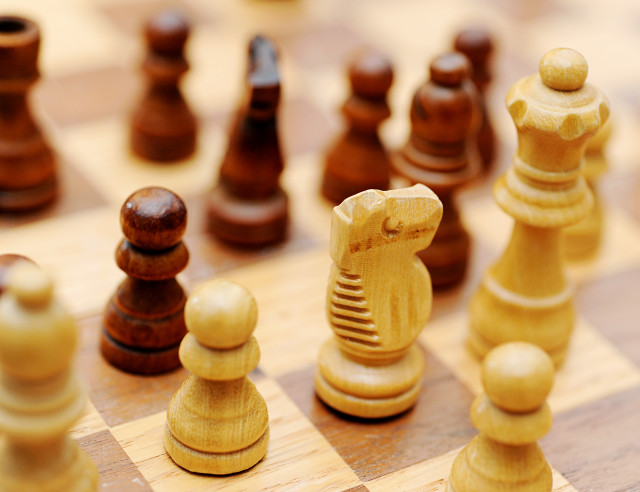Games are an incredibly diverse medium. Even looking at board games alone gets you works as varied as Monopoly, Chess, Advanced Squad Leader and Agricola. Add in miniatures games, collectible card games, role-playing games, playground games, lawn games and video games, and any attempt at general analysis becomes overwhelming. Yet, intuitively, there are threads that connect these vastly different forms. Some ties are tighter than others, but they’re all linked.
One way to get at these threads is to try to come up with a single, universal definition of “game.” This is a fool’s errand. There’s simply too much variance, too much wiggle room, to allow for a rigid definition. Besides, what does that rigidity get us? It only serves to make “game” an exclusive category, rather than telling us anything about the multitude of creations under the word’s umbrella.
Instead of trying to define what a game is, let’s talk about them comparatively. What other experiences are they similar to? How do they hook us? Games are abstractions and abstractions are metaphorical. So what metaphors are at work in the games we play?
There are several common metaphors we already use when talking about games. One is the battle. Games are like battles when they pit players against each other, give them tools to attack or resources to control and when the rules are there to determine how players are allowed to screw with each other. This metaphor is most obvious in professional sports and war games like Twilight Struggle, but you can see it operating in single-player video games and co-operative board games, where the idea is still to “beat” an enemy, even if it’s non-human. When that competition turns inward, the race metaphor starts working. Now, it’s about improving past performance. The rules set the limits on that improvement. In running, your body limits you; in Sorry!, the cards limit you; in Ticket to Ride, your actions limit you – but in each, you’re trying to move up a track as far as possible. Games can be like toys too, creating joy out of pure interaction: you press a button and watch the machine buzz and whir. In tag you have fun just from running and in Cards Against Humanity you have fun by being horrible. In neither case is winning particularly important.

These are not exclusive groups, nor are they intrinsic to the games I’ve mentioned. Most games mix their metaphors. It’s up to us to decide which we care about. Pandemic can be about outwitting the system, or improving our own performance, or having fun with cubes. It’s just a question of emphasis.
So what other aspects of games can we emphasize?
The word “play” leads us in an interesting direction. Are games like theatre? Well, both involve people playing roles. I’m not just talking about role-playing games, but rather any game where players strongly identify with characters. Talisman, Tales of Arabian Nights and, heck, even Tammany Hall have aspects of performance. Like the theatre, this performance has a script. The rules tell you who you are and what you’re trying to do. But the script doesn’t control the performance: different players on different nights will create different shows. Sometimes there’s even a director, whether in the form of a Game Master or a friend teaching everyone how to play.
“Play” also suggests a musical metaphor. Can you play a game like you play a song? Again, there’s a pre-determined composition that’s open to variation, the idea of the conductor, the need for harmony between participants. Music also brings in the idea of repetition. You hear a song you like and play it over and over until it burrows into your blood. Games get played on repeat too: I’ve played more matches of Euchre and Netrunner and Smash Bros. than you can count. Each of these games creates a rhythm that becomes satisfying because of its familiarity. Variation between rhythms can be interesting too. Sometimes you want to hit that same Bohnanza beat over and over again, sometimes you want to slow it down with Mage Knight or speed it up with Spot It! A game night becomes a playlist and the host is your DJ.
A playlist is kind of like a menu. Instead of songs, there are dishes. The meal metaphor might be my favourite. A game is a list of ingredients and the methods for putting them together: mix a pinch of red cubes with a dash of blue chits, simmer, and voilá! Five victory points! Everybody sits down around the table to enjoy the night’s offerings, passing the fixins around as needed. It’s even common practice to arrange games into a multi-course affair. First are the light games to tease the appetite – at my old job we called them breadsticks – then comes the heavier main course and finally a fun, silly dessert hopefully leaving everybody satisfied but not bloated.
Why the need for these sometimes goofy explorations? Because I’m tired of how we talk about games. I’m tired of only judging them by how competitive they are or the complexity of their systems. Even focusing on “fun” getting boring. I want to judge games based on the evening’s performance, or by the rhythm they sink into my hands and brain, or by how well they fit into a menu of other experiences. I want to recognize that games can be all of these things and more and that they can be them at the same time. It just depends on what metaphors you use.
Loved reading your opening …. the metaphors for games really got me thinking…..songs, plays, meals! You’re right, games are a feast, thanks.